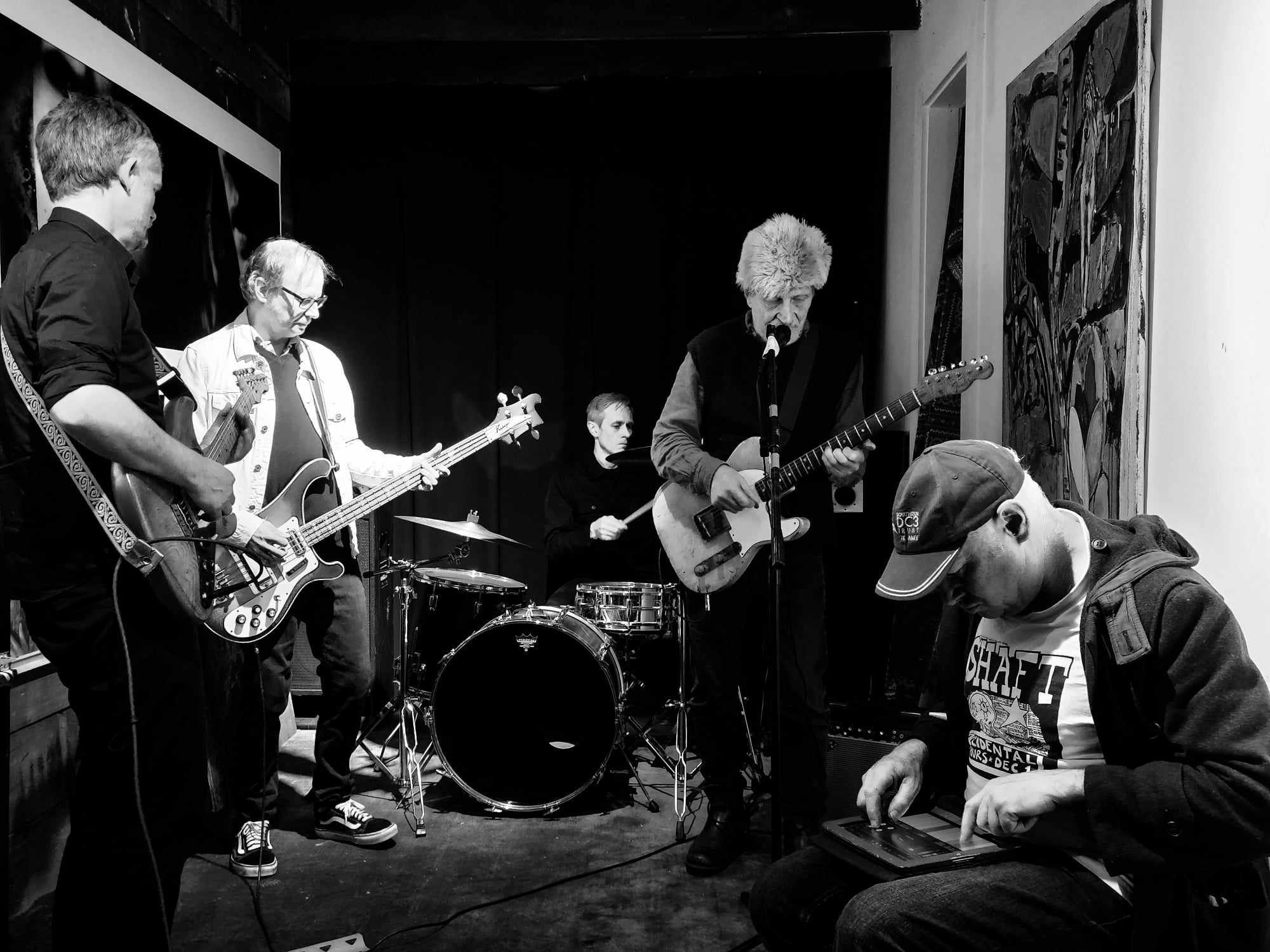
The familiar acoustics of the Crown Hotel will tonight echo to the chords of George D. Henderson’s West Auckland emanation, The New Existentialists.
The band, which doesn’t stray any great distance from Henderson’s band of local legend, The Puddle, in its archly unkempt approach to crafting songs of delicate melody and riotous arrangement, has a couple of recent releases plying social media — Last Days of the Internet and Invocation.
The former is described as "a protest song about the betrayed promises of the early world-wide-web", while the latter is a "doom metal song about climate change".
Climate change, Henderson says, having become a source of existential dread, seemed eminently appropriate to a doom-metal treatment.
The video for the song was filmed in West Auckland in areas affected by Cyclone Gabrielle.
Ahead of the gig, Henderson fielded a couple of questions:
Q It’s likely that Dunedin audiences still associate you most closely with your band The Puddle. How would you describe the output of The New Existentialists with reference to The Puddle?
A A bit faster, a bit noisier, maybe a bit more conscious of an expression ... We use synths instead of keys, there are two guitarists, and I’ve finally learned how to use amps and pedals.
Q The band’s music is described as "freakbeat psych", can you unpack that a little for us?
A Guitar and synth noise colouring, high velocity beats, teetering on the brink, lounging out occasionally. Noisily psychedelic beat music. What would Jimi do?
Q What sort of instrumentation will the band be employing for the Dunedin gig?
A Ned Bycroft on drums, Andrew Moore on bass, Jamey Danger on lead guitar, me on rhythm and lead, and Chris Heazlewood on eccentric synth.
Q You’ve long had an ear for a song hook. Has your process to unearth them changed over the years?
A It seems like my harmonic and melodic preference has stayed much the same — The New Existentialists have been able to perfect a few songs I began 40 years ago — but I’m always needing to vary how I expressed it. If I wrote a song that didn’t have a hook I’d soon forget it anyway. What’s changed is that so much of what I listen to now is modern studio music — hyperpop, trap, reggaeton, d’n’b, plugg’n’b, as well as metal. I might not be able to copy those sounds, but I try to respect them.
Q You’ve either lived and played in Dunedin or been a regular visitor since at least the 1980s. Would that have started from the days of the Chippendale House collective in Stafford St, or earlier still?
A I moved to Dunedin in 1982 I think, started The Puddle a year or two later, and didn’t leave till 2005.
Q What are some of your fondest memories of Dunedin gigs.
A Gigs in the ’80s at The Oriental — The Great Unwashed, Sneaky Feelings, Tall Dwarfs, Snapper. Later, the ’90s Puddle had some great Orientation crowds, and got to see King Loser. And I met the love of my life playing at Sammy’s and Chicks, so there’s that.
Q You take aim at a couple of the biggest plagues besetting humanity with recent songs Last Days of the Internet and Invocation, respectively tackling online scourges and climate change. Is polemic a particular feature of The New Existentialists’ approach?
A Polemic, or a social subtext might have been a significant part of many Puddle lyrics too, now I think about it, but that sort of thing sits most comfortably with me when the song’s also deeply personal, as both Internet and Invocation are. We’ll be playing 500 Year, a new song about the AI music future, at the gig!
The gig
• The New Existentialists play The Crown Hotel tonight, supported by Wet Specimen, Pearly and Children's Letters to God.












